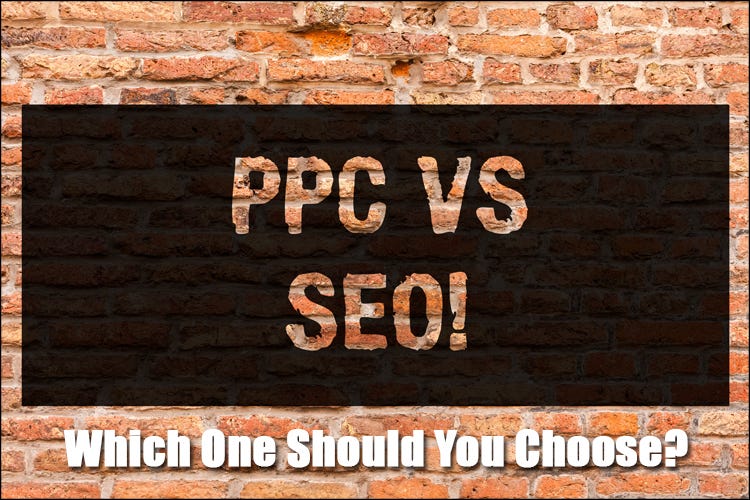

There are two ways to generate traffic. First is SEO (Search Engine Optimisation) and second is PPC (Pay-Per-Click). If you are unable to decide between which one of these two should you choose to make your business successful, think again. Do you really need to choose?
Digital Marketing isn’t a one-size-fits-all type. Your strategy will depend on your individual goals, business, and market. In fact, a combined approach might even turn out to be the best.
However, each one of them has its own pros and cons. In this blog, we are going to break down each strategy and find out what a combined approach can accomplish!
Figure Out Your Digital Marketing Goals & Limitations
To know which strategy will be ideal for your business, you need to find out your digital marketing goals and limitations. You can do this by asking these questions:
- What is your budget?
SEO might be an ideal option for a meager budget. However, it takes longer to produce noticeable traffic. PPC can generate quicker results if you have a sizable budget, although it may take longer to get your desired ROI (return on investment).
2. What is your industry’s average CPC?
CPC (cost-per-click) varies from industry to industry. Without researching your industry, you can’t find out the cost of PPC.
3. What is the SERP competition in your industry?
In several industries, getting ranked in the first SERP (Search Engine Result Page) is next to impossible without a prominent investment. If your industry is one of these, then PPC might not be worth it.
Boosting Organic Traffic With SEO
The ultimate goal of SEO is to get placed on the first page of the search results. Since most of the algorithms that determine rank is still a mystery, it might require critical research, trials, and errors to find the right SEO tactics. So it would be best to go with the SEO strategy that is already working, i.e., keywords and positive user experience.
Moreover, small and local businesses get a marketing advantage from SEO. Locally relevant keywords are preferred by Google, which often prioritizes small businesses in organic search.
Targeting Audience With PPC
PPC uses paid search to generate traffic. When someone clicks your ad, you pay a specific amount based on the keywords you used. You place a bid on some keywords in the hope that your PPC ad will reach the top of the search results.
Based on the mix of your top bid amount and advertisement quality score, Google decides which bid will win and get the top position. This implies that the highest bid doesn’t necessarily win. However, there is nothing to worry about as this ”auction” for keywords happens millions of times in a month to make sure that people encounter relevant ads.
If you have the budget, PPC can reward you. It is a guaranteed means to get the best position for your ad, especially if you have the money for experimenting and determining which keywords and advertisements generate the highest ROI.
Pros Of SEO
- Fewer expenses — In SEO, the only thing you are spending is time. You can hire a professional agency, but even then, the costs will be considerably less than a PPC Campaign.
- Gives greater credibility — As you can understand, paid adverts get fewer clicks than organic search results.
- Higher conversion rates — The chances of viewers converting without needing to be sold on your products or services are higher since their search was targeted to start with.
- Increased visibility — SEO boosts your brand visibility, which in turn generates more traffic.
- Better CTR — The click-through rates for organic searches are statistically higher than PPC.
- More sustainability — Have you exhausted your marketing budget? No worries — unlike PPC strategy, you won’t need to revise your SEO strategy.
Pros Of PPC
- PPC works — Once you make the bid and your ad is positioned, you will see more traffic significantly faster as compared to organic search.
- Measure and change results — You can find out which PPC campaigns are successful and why using real-time analytics. Moreover, if something is not working, you can instantly change it before it can impact yourlong-term results negatively.
- Contribution to multiple business goals — PPC supports various aspects of the sales funnel.
- Target your audience more accurately — PPC lets you focus on specific elements that might have been hard to reach otherwise.
- Adaptable — Want to go all-in? Or spend a little? You can always adapt; it’s up to you.
DO SEO AND PPC GO WELL TOGETHER?
Typically, you can make SEO and PPC work coefficients by balancing them. For instance, the keyword and conversion data from your PPC strategy can be applied to your SEO strategy.
A combined strategy can optimize both SEO and PPC to enhance visibility, boost traffic, and offer an overall better user experience. This can be the exact plan that your business needs to flourish.
Let us know your views about this integrated strategy in the comments below.
Hariom Balhara is an inventive person who has been doing intensive research in particular topics and writing blogs and articles for E Global Soft Solutions. E Global Soft Solutions is a digital marketing, seo, smo, ppc and web development company that comes with massive experiences. We specialize in digital marketing, web designing and development, graphic design, and a lot more.
SOURCE : SEO vs. PPC: Which One Should You Choose?, E Global Soft Solutions



























